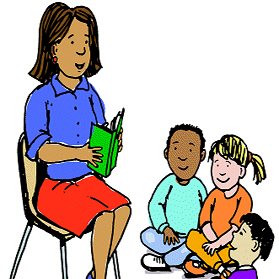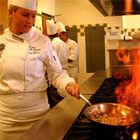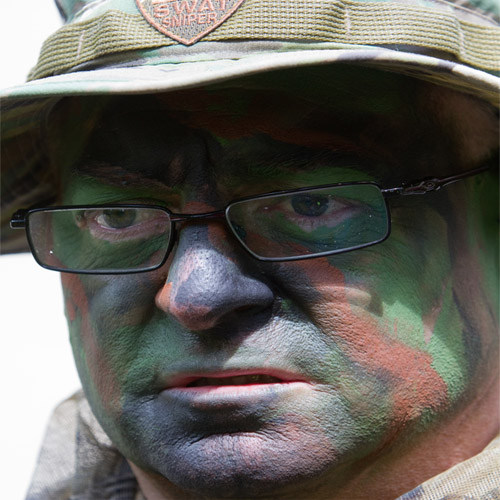
EdnaKrabappel
Chicago, IL
Female, 32
From ’03-‘06, I was a special education teacher in Philadelphia as part of Teach for America. I taught children with mild to moderate special needs (primarily learning disabilities, attention deficits, cognitive disabilities, and behavioral problems) in grades 2 - 8 in all academic subjects. I saw a lot of things and learned a lot...especially the art of patience.
Yes. This is a definite organizational nightmare. I had as many as 15 kids at a time, may or may not have had another adult aide to help me, and they each had at least 3 IEP goals which I was responsible for monitoring. A side effect of this problem which I've noticed over the years is that many case managers (special education teachers usually) generalize their IEP goals so they can better manage the needs of multiple students in a single class. This is technically against the law as an IEP is intended to provide an INDIVIDUALIZED plan for a child's education to meet his or her unique needs.
I have not personally had this experience as a teacher, but since leaving the classroom I have seen this in my administrative roles in schools. There are definitely children who have special needs which cannot be met adequately in a traditional school setting or special education classroom in their public school. This is where private schools come in - private therapeutic schools provide very small classes (5-10 students) with severe disabilities or behavioral problems. Some of these schools are residential and students live on the premises, while others use bus or taxi transportation. Students in a public school who need such a placement are typically placed in these VERY costly schools after much careful decision making and debate. Taxpayers foot the bill for these placements, so schools often try to meet children's needs within the public schools whenever possible. One sad thing to note is that it can be very difficult for students to transition back to a traditional school after attending a private therapeutic school, so placing a young child there may mean that they'll never attend school with their non-disabled peers.
It is best to avoid physical contact with students whenever you can - unless you are specially trained to restrain students when they are having a tantrum which threatens their own safety or the safety of others. However, sometimes unintentional injuries do happen. You can help avoid some of these incidents by creating a safe environment in your classroom and setting the expectation that no one is allowed to hurt themself or anyone else in your classroom, hold regular meetings or discussions with your students to discuss classroom functioning, social-emotional awareness and interpersonal/friendship skills, and consistently enforcing the expectation that no one is allowed to harm others or themself. Enlist the support of your school social worker, school psychologist, counselor, school police officer, or administrators if you feel that you're having difficulty establishing a positive classroom environment.
Typically you are certified as either a general education teacher or as a special education teacher but not both, so most of the time you are not allowed to teach classes outside of the area you are certified in. In recent years, special ed teachers have been providing more "push-in" support to students with special needs, however, which means that they are more likely to be working alongside general education teachers in a general education class to support students there instead of having their own special education classroom and pulling students out to work with them in a separate room.
Chef
 Is it true that the "specials" are usually the stuff that's been sitting around awhile?
Is it true that the "specials" are usually the stuff that's been sitting around awhile?
Hotel Employee
 What was the craziest request you ever got from a guest?
What was the craziest request you ever got from a guest?
SWAT Team Commander (Retired)
 How do you decide whether to try and kill a hostage taker?
How do you decide whether to try and kill a hostage taker?
Unfortunately, I can speak from some personal experience on this question. I intervened when a student in my classroom grabbed a pair of scissors and went after another classmate with them. Fortunately, I was able to get the scissors away from him and keep the student from hurting anyone else, including me. I did learn from this experience the importance of not leaving a pair of scissors out on top of my desk, however. Often, when a student brings a weapon to school (or finds one there) to use in an aggressive manner, you have had some warning signs ahead of time to know that this is a student who is volatile, in need of social-emotional support, or has had a pattern of aggressive behaviors in his/her past. In these cases, teachers should ask for support from their school social worker, school psychologist, counselor, or an administrator to be sure that everything that can be done is being done to support the student with mental health support, violence threat assessments, suicidal threat assessments, and disciplinary actions as appropriate to prevent an incident from happening in your classroom. In the case of students who unexpectedly wield a weapon in your classroom, seemingly without warning, just do your best to keep your other students safe while attempting to calm and/or disarm the student and getting help from another teacher, administrator, or school police officer.
You can find some good general information about Autism here: http://www.nimh.nih.gov/health/topics/autism-spectrum-disorders-asd/index.shtml
In most states you are required to have a Special Education teaching certificate in order to teach special education. However, this does not necessarily require a degree in special education. It might be required that you complete coursework in special education or pass a certification exam on special education topics, but not necessarily have a major in special education. Check with the State Department of Education or the Professional Licensing/Certification Office to be certain of the requirements in your state.
Differentiation of instruction is the method of meeting the needs of children in a classroom. Even children without any type of special need can vary greatly in their skills. A teacher is prepared during their university coursework to understand how to effectively assess, measure, and support children with varying needs in a single classroom. Preparing scaffolded activities that include reminders of skills previously learned that lead up to a new skill being taught, as well as activities that include enrichment opportunities to build upon a new skill and apply it in a new way, are some examples of differentiation. Small group work within a classroom can also be helpful to make it easier to support children of similar needs some of the school day, while providing opportunities for children who struggle in a given skill area to work alongside peer models who are stronger in that skill area.
-OR-
 Login with Facebook
Login with Facebook (max 20 characters - letters, numbers, and underscores only. Note that your username is private, and you have the option to choose an alias when asking questions or hosting a Q&A.)
(A valid e-mail address is required. Your e-mail will not be shared with anyone.)
(min 5 characters)
By checking this box, you acknowledge that you have read and agree to Jobstr.com’s Terms and Privacy Policy.
-OR-
 Register with Facebook
Register with Facebook(Don't worry: you'll be able to choose an alias when asking questions or hosting a Q&A.)